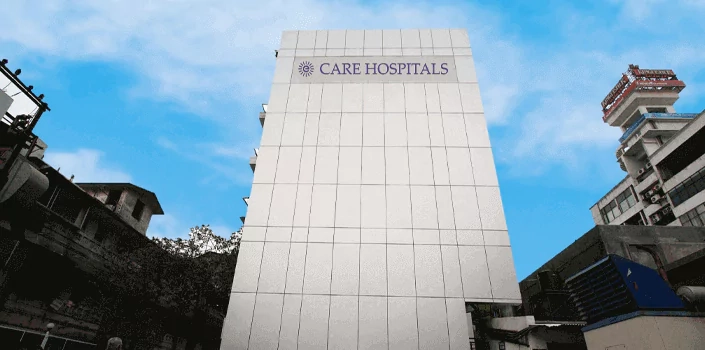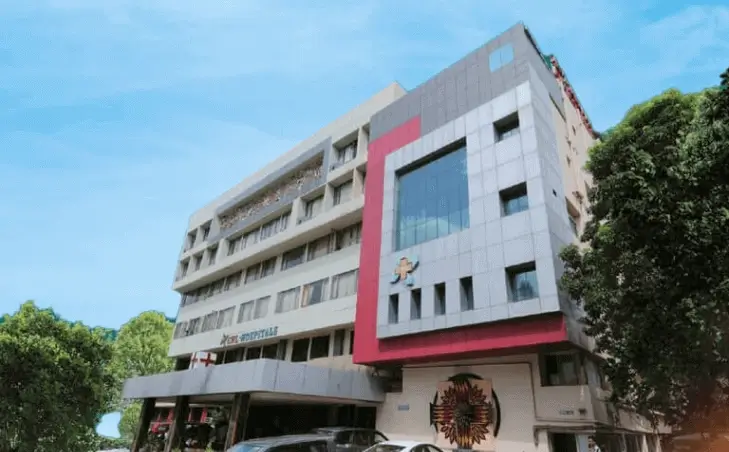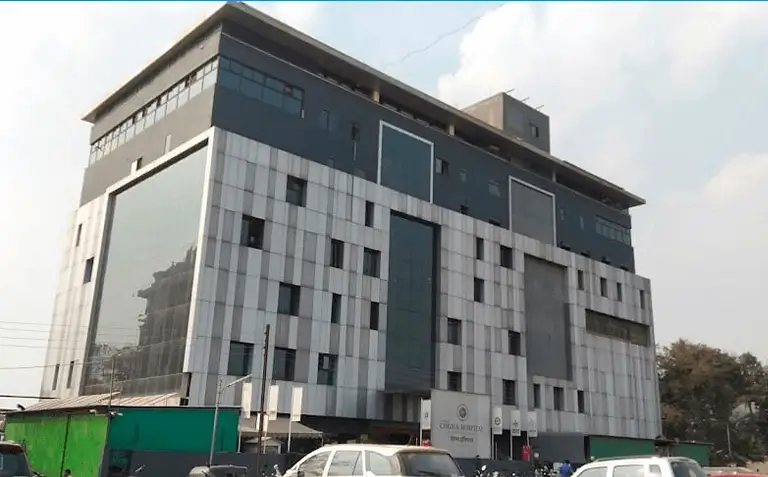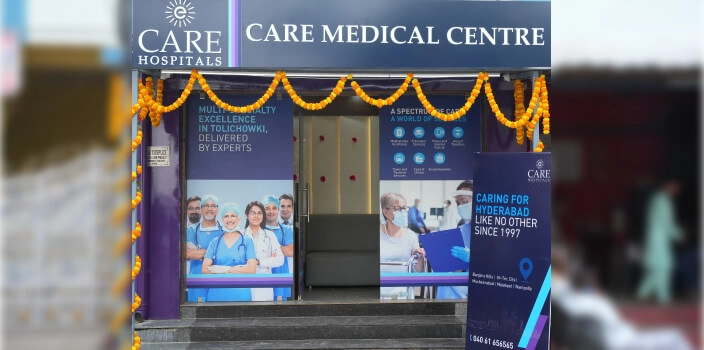-
Doctors
-
Specialities & Treatments
Centre of Excellence
Specialties
Treatments and Procedures
Hospitals & Directions HyderabadCARE Hospitals, Banjara Hills CARE Outpatient Centre, Banjara Hills CARE Hospitals, HITEC City CARE Hospitals, Nampally Gurunanak CARE Hospitals, Musheerabad CARE Hospitals Outpatient Centre, HITEC City CARE Hospitals, Malakpet
HyderabadCARE Hospitals, Banjara Hills CARE Outpatient Centre, Banjara Hills CARE Hospitals, HITEC City CARE Hospitals, Nampally Gurunanak CARE Hospitals, Musheerabad CARE Hospitals Outpatient Centre, HITEC City CARE Hospitals, Malakpet Raipur
Raipur
 Bhubaneswar
Bhubaneswar Visakhapatnam
Visakhapatnam
 Nagpur
Nagpur
 Indore
Indore
 Chh. Sambhajinagar
Chh. SambhajinagarClinics & Medical Centers
Book an AppointmentContact Us
Online Lab Reports
Book an Appointment
Consult Super-Specialist Doctors at CARE Hospitals

Best Hospital for Gastric Band Surgery in Hyderabad
- Advanced Technology
- Shorter Hospital Stay
- Pre & Post-Operative Care
- All Insurance Accepted

Chat With Our Experts
Get second opinion on Whatsapp
25 lakhs+
Happy Patients
Experienced and
skilled surgeons
17
Health Care Facilities
Top most Referral Centre
for Complex Surgeries
Advanced Gastric Band Surgery
Gastric Band surgery helps people dealing with extreme obesity. The weight loss procedure helps patients lose excess weight by restricting their food intake at each meal.
Doctors perform this procedure, also known as laparoscopic adjustable gastric banding, by placing a silicone band around the stomach's upper part. The band creates a small stomach pouch. This smaller pouch signals the brain to make you feel full with less food.
Why CARE Group Hospitals is Your Top Choice for Gastric Band Surgery in Hyderabad
CARE Group Hospitals has become the go-to place for gastric band surgery in Hyderabad. Their surgical expertise and patient-first approach make them stand out. The hospital's leadership in bariatric procedures gives patients the best care throughout their weight loss experience.
CARE Hospitals takes an all-encompassing approach to patient care:
- Medical teams screen patients extensively before approving gastric band surgery
- Patients receive exceptional support after their procedure
- Expert physicians handle all needed follow-ups and check-ups
Best Gastric Band Surgery Doctors in India


Cutting-Edge Surgical Innovations at CARE Hospital
CARE's surgical approach centres on its steadfast dedication to minimally invasive surgeries. This method lets surgeons perform complex gastric band procedures through tiny incisions instead of traditional open surgery. About 70% of all surgeries at CARE Hospitals use this approach. Patients experience nowhere near the operative pain and recover faster with this minimally invasive technique.
Conditions for Gastric Band surgery
Medical eligibility criteria determine who can have gastric band surgery. Patients must meet specific requirements set by medical authorities to qualify.
- Body Mass Index (BMI) Requirements: BMI thresholds are the main qualification for gastric band surgery:
- BMI of 40 or higher (considered extreme obesity)
- BMI between 35-39.9 with at least one obesity-related health condition
- BMI between 30-35 with obesity-related health problems in certain cases
- Health Conditions That May Qualify Patients: Several health conditions can qualify patients who have lower BMI thresholds:
- Type 2 diabetes
- Hypertension (high blood pressure)
- Sleep apnea
- Heart disease
- Nonalcoholic fatty liver disease
- High cholesterol levels
- Severely limiting musculoskeletal issues
- Additional Qualifying Factors: Doctors review these factors beyond BMI and health conditions:
- Failed attempts at weight loss through diet, exercise, and medications
- Psychological readiness and absence of uncontrolled psychiatric illness
- No current alcohol or drug dependence
- Medical stability for surgery
- Dedication to making permanent lifestyle changes
Types of Gastric Band procedures
Doctors use several variants of laparoscopic adjustable gastric banding, each offering unique features and benefits. Different band models have evolved in the last several years to help patients achieve better weight loss outcomes.
The FDA approved the LAP-BAND system in 2001. Patients feel fuller faster because this silicone device creates a small stomach pouch. The system's evolution has led to several models.
Pre-surgery Preparation
Patients need complete preparation that includes:
- Medical evaluations with blood tests and imaging studies show potential risks
- A psychological assessment determines readiness for surgery and lifestyle changes
- Specific diet plans, which often include a very low-calorie diet 2-3 weeks before surgery
- No smoking
- Doctors stop certain medications like blood thinners
- The surgical team discusses expectations and addresses concerns during consultation
Gastric Band Surgical Procedure
The surgical procedure takes 30 to 60 minutes and includes:
- The team administers general anaesthesia
- Small "keyhole" incisions appear in the abdomen
- Carbon dioxide gas inflates the abdomen
- A silicone band wraps around the stomach's upper portion
- An access port sits under the skin for future adjustments
- Dissolvable stitches close the incisions
Post-Gastric Band Surgery Recovery
Most patients can expect to:
- Go home the same day or after a brief hospital stay
- Start with liquids for the first few days
- Move to pureed foods (weeks 3-4), soft foods (weeks 5-8), and finally regular foods
- Visit regularly for band adjustments
- Get back to normal activities after 3-6 weeks
Risks and Complications
These complications might occur:
- Band slippage
- Band erosion into the stomach
- Port or tubing problems need adjustment
- The pouch can dilate from overeating
- GERD symptoms affect up to one-third of patients
- Reoperation needs
Benefits of Gastric Band Surgery
The main advantages include:
- Lower risk of early post-surgical complications compared to other bariatric procedures
- Better control of obesity-related conditions like type 2 diabetes and high blood pressure
- The stomach and intestines stay intact
- Doctors can remove the band if needed
- Vitamin deficiencies rarely occur
- Patients enjoy better quality of life and mobility
Insurance Assistance for Gastric Band Surgery
Insurance coverage requires:
- A BMI of 40+ or 35-40 with related health conditions
- Records of previous weight loss attempts
- Complete nutritional and psychological evaluations
- A waiting period of around 30 days for most policies
- Doctor's recommendation to establish medical necessity
Second Opinion for Gastric Band Surgery
Getting a second opinion before gastric band surgery can change a patient's treatment path dramatically. What makes another specialist's viewpoint valuable? A fresh assessment brings several benefits:
- Better chances of getting the right diagnosis and treatment
- New weight loss options you might have missed
- Peace of mind about your health decision
- Better communication between you and your doctors
- A treatment plan that fits your needs perfectly
- Finding less invasive options that could work for you
Conclusion
Gastric band surgery provides a practical solution for people who struggle with extreme obesity. The procedure creates a smaller stomach pouch that helps patients feel full faster and eat less food. Weight loss occurs more gradually compared to other bariatric surgeries, yet patients can expect to lose between 40-60% of their excess weight.
CARE Group Hospitals emerges as a leading choice for this procedure in Hyderabad. Their expertise in Minimal Access Surgeries results in less pain and faster recovery for patients. Their integrated approach has detailed screening, exceptional aftercare, and regular follow-ups - all vital elements for successful outcomes.
The hospital has definitely adopted innovative technology. Their surgical advancements include advanced robotic systems, 3D imaging, and virtual reality technology for surgical planning. These tools enable surgeons to perform precise and safe gastric band procedures.
Best Gastric Band Surgery Hospitals in India
-
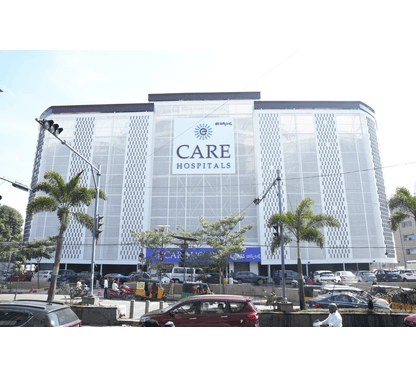
CARE Hospitals, Banjara Hills, Hyderabad
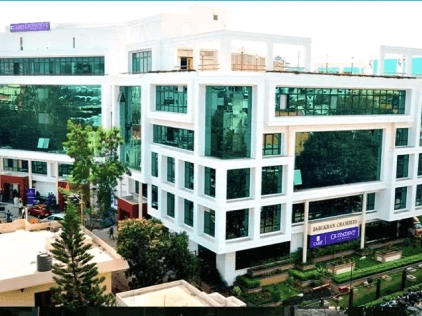
CARE Hospitals Outpatient Centre, Banjara Hills, Hyderabad
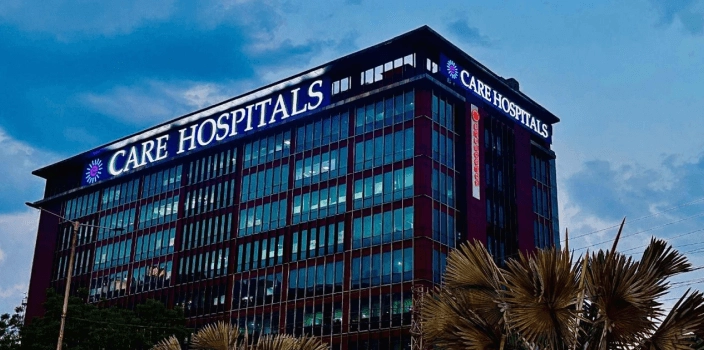
CARE Hospitals, HITEC City, Hyderabad
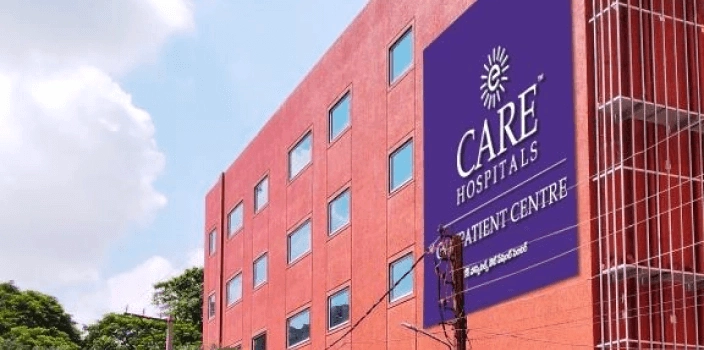
CARE Hospitals Outpatient Centre, HITEC City, Hyderabad
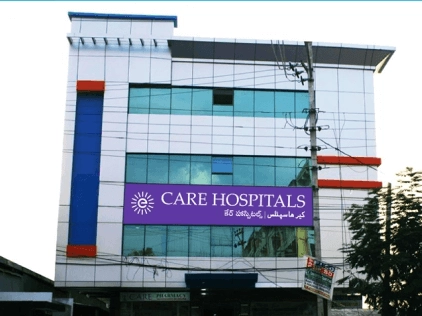
Gurunanak CARE Hospitals, Musheerabad, Hyderabad
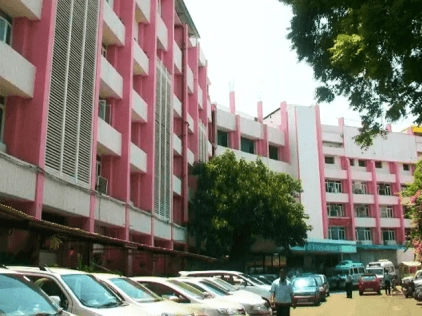
CARE Hospitals, Nampally, Hyderabad
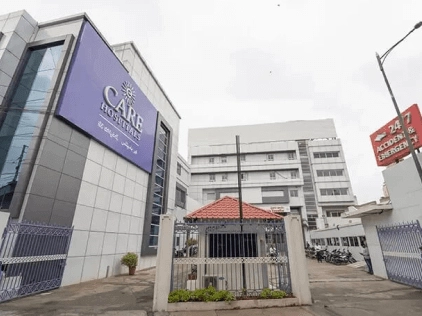
CARE Hospitals, Malakpet, Hyderabad
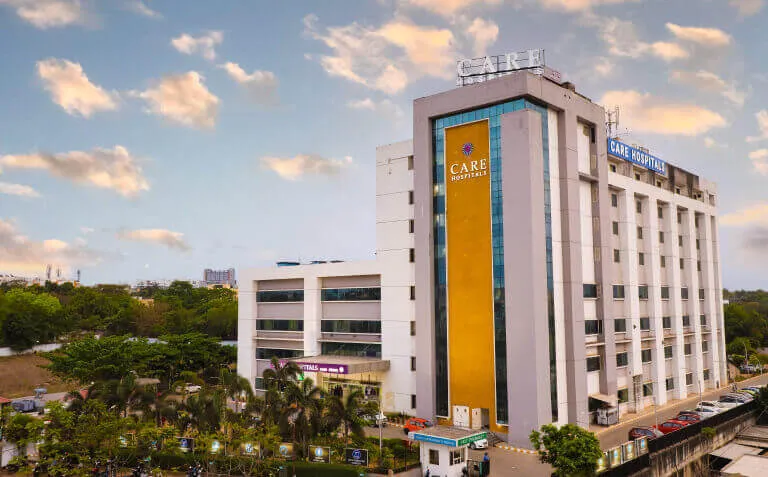
CARE Hospitals, Bhubaneswar
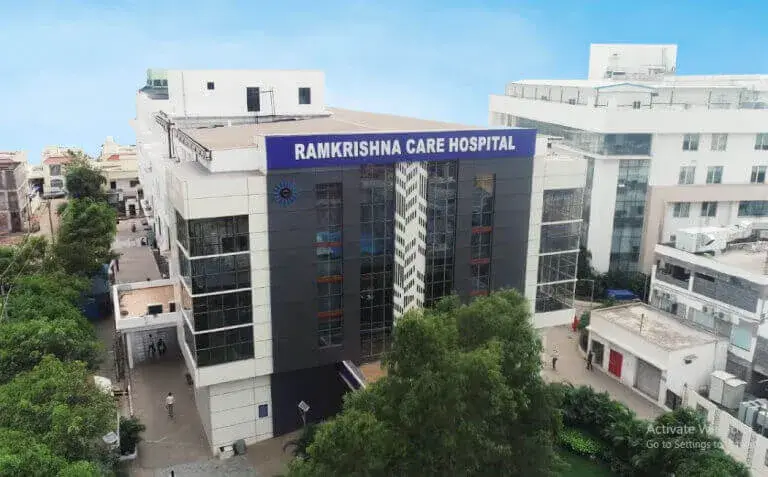
Ramkrishna CARE Hospitals, Raipur
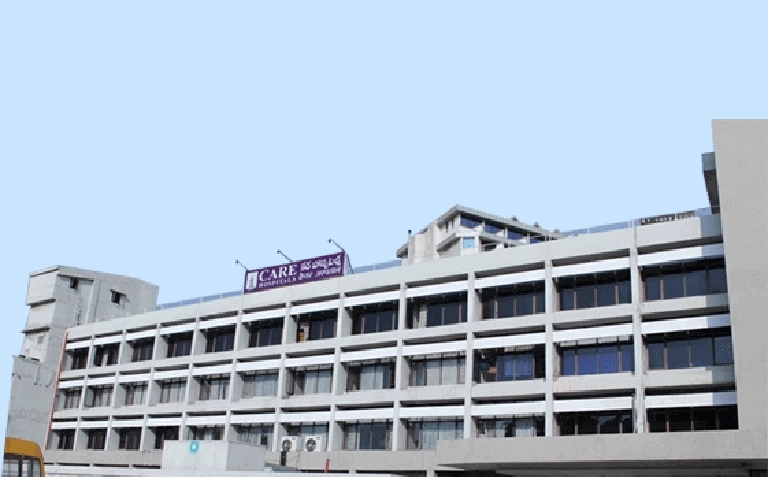
CARE Hospitals, Ramnagar, Visakhapatnam
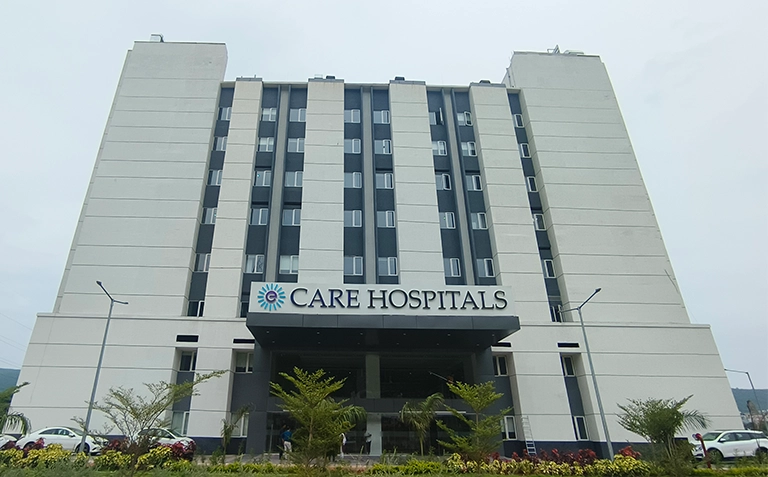
CARE Hospitals, Health City, Arilova
Related Surgeries
- Best Hospital for Thoracotomy Surgery in Hyderabad
- Best Hospital for Hiatus Hernia Surgery in Hyderabad
- Best Hospital for Incisional Hernia Surgery in Hyderabad
- Best Hospital for Pilonidal Sinus Surgery in Hyderabad
- Best Hospitals for Hepatectomy Surgery in Hyderabad
- Best Hospitals for Acute Appendicitis Surgery in Hyderabad
- Best Hospital for Thymectomy Surgery in Hyderabad
- Best Hospital for Epigastric Hernia Surgery in Hyderabad
- Best Hospital for Gastric Band Surgery in Hyderabad
- Best Hospital for Anorectal Surgery in Hyderabad
- Best Hospital for Inguinal Hernia Surgery in Hyderabad
- Best Hospital for Pilonidal Cystectomy Surgery in Hyderabad
- Best Hospital for Splenectomy Surgery in Hyderabad
- Best Hospital for Rectopexy Surgery in Hyderabad
- Best Hospital for Hemorrhoidectomy in Hyderabad
- Best Hospital for Esophagectomy Surgery in Hyderabad
- Best Hospital for Cervical Lymph Node Dissection Surgery in Hyderabad
Frequently Asked Questions
A gastric band surgery places an adjustable silicone band around your stomach's upper part. This creates a small pouch that holds less food and makes you feel full faster. The band has an inflatable balloon that connects to a port under your skin. This lets doctors adjust the tightness based on your needs.
Doctors suggest gastric band surgery in these cases:
- After non-surgical weight loss methods fail
- People suffering from obesity-related health issues like diabetes or sleep apnea need it
- Patients ready to make permanent lifestyle changes
You might qualify for gastric band surgery if you have:
- BMI of 40 or higher
- BMI of 35-40 with obesity-related health conditions
- BMI of 30-35 with hard-to-control type 2 diabetes
Candidates also need psychological clearance and should be free from alcohol or substance dependence.
Gastric banding is one of the safest weight loss surgeries. The procedure comes with a very low rate of late complications.
The minimally invasive laparoscopic approach means patients feel little pain. Small "keyhole" cuts cause less discomfort than traditional surgery.
Doctors complete the procedure in 30 to 60 minutes. Patients usually head home the same day or next.
Gastric banding counts as major surgery but remains less invasive than other weight loss procedures. The surgery doesn't cut or reroute your digestive system. Your stomach returns to its normal size if doctors remove the band, making it reversible.
Complications from gastric band surgery can include:
- Band slippage
- Pouch dilation when patients overeat
- Band erosion into the stomach
- Port or tubing problems that need adjustment
- GERD symptoms or acid reflux
- Oesophageal dilation if the band becomes too tight
Patients usually go home within 1-3 days after surgery. Recovery involves:
- Going back to work within 1-2 weeks
- Sticking to a liquid diet for at least one week
- Moving to soft foods between weeks 5-8
- Getting back to normal activities after 4-6 weeks
- First band adjustment happens 6-8 weeks after surgery
Results show:
- Weight loss ranges from 40-60% of excess weight over two years
- Health improvements in obesity-related conditions
- Weight regain happens in some cases
- Band removal might be needed
- Lifelong follow-ups are essential
Doctors use general anaesthesia for gastric band surgery. The surgery takes 30-60 minutes.
Yes, but eating habits need to change:
- Small, frequent meals work best
- Food needs careful chewing to avoid blockages
- Drinking during meals should be avoided
- Some foods might cause discomfort (bread, pasta, fibrous vegetables)
This surgery isn't right for people with:
- Inflammatory digestive conditions like ulcers or Crohn's disease
- Severe heart or lung disease
- Active substance abuse or untreated psychiatric disorders
- Pregnancy
- Cirrhosis or chronic pancreatitis
Most patients lose 50-60% of their excess weight over two years.
Weight gain can happen when:
- Regular overeating stretches the stomach pouch
- High-calorie liquids become the main source of calories
- Recommended lifestyle changes aren't followed
- The band has mechanical issues
Still Have a Question?










